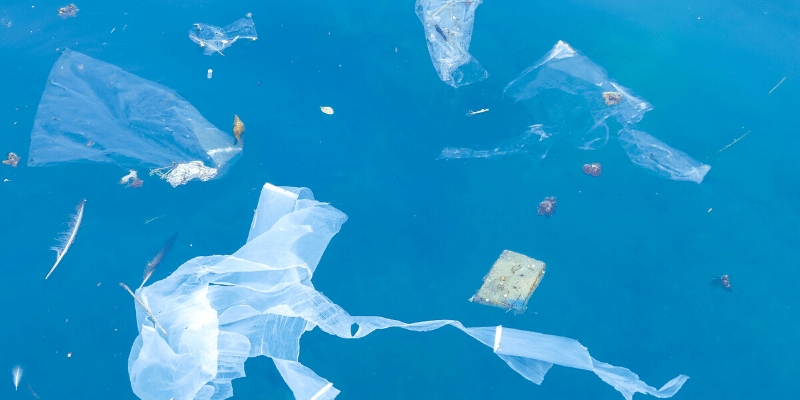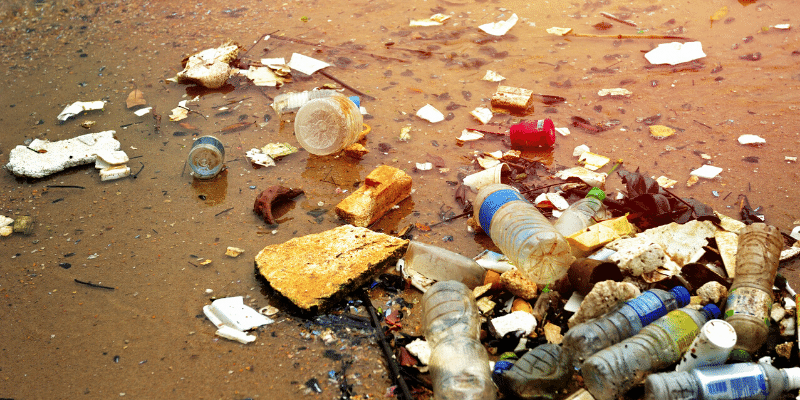Why Corporate Commitments on Plastic are Going Flat
In 2018 some of the biggest polluters in the world came together to make a commitment to eliminate plastic pollution. The idea was based on a shared vision – that plastic should never become pollution. Simple, admirable, and achievable.
4 years on however and this vision is, well, very much still a vision. The Ellen MacArthur Foundation (The EMF) with the UNEP has just launched the fourth “Global Commitment annual report”. It isn’t easy reading. Not easy for those not au fait with the corporate jargon and definitely not easy for those that care about the state of our natural world.
So, we’ve pulled out the best and worst bits of how these big polluters are doing and what we think needs to happen next!

Promises falling down while plastic use is up
So, what does the report tell us? Well … while there is some good news, the headlines are that companies will miss key 2025 targets that they set themselves. The target of achieving 100% reusable, recyclable, or compostable packaging by 2025 will ‘almost certainly’ not be met, the report says. Perhaps just as worrying is that it reported an overall increase of virgin plastic use back to 2018 levels and a depressing increase of 5% of total plastic use. Released just ahead of COP27, this is not what we wanted to hear.
There are some high-profile names in there and, as a rule of thumb, the bigger the name the bigger the problem. PepsiCo for example increased its use of virgin plastic by 5% between 2020 and 2021. Meanwhile, Coca-Cola (more about them later) upped its use by 3% and Mars by 11%. Smaller companies have, in their own small ways, made some progress.
But in short, it’s not good news.

Reuses of excuses about reuse
Not only was plastic use up by the big companies, but many of the solutions we’ve been banging on about for the last few years have still not been adopted. The report says that broadly “both progress and ambition on reuse are still lacking”. Signatories’ share of reusable plastic packaging decreased slightly compared to last year and is now at an average of 1.2%. ☹
Although welcoming a few high-profile announcements (like Coca-Cola), the report says, “Overall, reuse ambitions remain limited, as very few brands and retailers have a reuse strategy in place. Despite an increasing number of reuse pilots, many are fragmented and not embedded in a business strategy that could lead to reuse at scale.”
Missed targets
The target of 100% reusable, recyclable, or compostable plastic packaging will “almost certainly” be missed by most organisations, with flexible packaging (like sachets!) and lack of infrastructure being the main barrier. However, there is a glimmer of good news here as well. For the third year in a row, the share of reusable, recyclable, or compostable plastic packaging has increased slightly (+ 1.7pp) to 65.4%.
There is also real progress on increasing the use of recycled plastics, leading to brand and retail signatories doubling their use of recycled content in three years. However – and this is a big however – this starts from a super low base. Signatories’ share of post-consumer recycled (PCR) content has doubled from just 4.8% in 2018 to 10.0% in 2021. Progress yes, but slow progress and nowhere near the levels we need to be.

A few guilty parties
Earlier when we said virgin plastic use was up, this only told half a story. Most (59%) of reporting companies actually showed a decrease in use of virgin plastics. 40% also decreased their total plastic packaging use in the same period, showing that significant reduction is indeed possible.
BUT – and this is a Coca-Cola sort of sized but – some of the worst polluters are using more plastic. Like way more. This means that not only is virgin plastic use up (driven by fossil fuel extraction), but also the total plastic use has increased (+5.0%) since 2018. This means our swamped waste and resource systems are even more overwhelmed than ever before!

Promises going flat
Coca-Cola are one of those big companies that are using more virgin plastics and who also remain the biggest plastic polluter in the world. When they were appointed official sponsor of COP27, the world’s media was quick to point the irony:
“Coca-Cola increased plastic use ahead of COP27 summit it is sponsoring” reported the FT.
While we called out the obvious nonsense of Coca-Cola being given an unchallenged greenwashing platform by sponsoring COP27, we’ve also just gone one step further and are calling for our supporters to invest in Coca-Cola as part of our “shareholder activism” campaign. The idea is super simple. Buy shares together and demand a reduction in the output of single-use plastics (the one essential measurable here we think!).

So how do we turn this ship around?
The report has some wisdom here. Its calls to action are sensible – the question is whether any of the polluters will actually do them! Some of the recommendations to business include:
- Develop and execute an ambitious reuse strategy with credible action plans that can lead to reuse models being deployed at scale.
- Develop a NEW approach to address the fast-growing issue of flexible packaging waste.
- Accelerate progress on the virgin reduction target (this has to go beyond just using more recycled plastics as this is clearly outstripping growth).
What we think needs to happen
It could be argued that this report is the logical conclusion of a system that puts profit over planet and people. While some companies are moving in the right direction, others are putting share prices before shared planets. That’s why we’ve taken this report as a chance to remind government that we need them to take a more interventionist approach to tackling the plastic crisis.
We’ve lost count of how many times we’ve now pointed out that England is the only country in Europe to not have banned some of the most polluting single-use plastics like cutlery. As an absolute minimum, we need to sort this out to begin with.
We agree with the report that government can and should be doing more. For example, on reuse (a subject WE LOVE to talk about), the report says: “Policy [this means government] can accelerate the adoption of reuse models or unlock reuse barriers, especially where industry-wide shared infrastructure or collaboration is required. Examples include reuse targets or mandates for specific applications and mandatory deposit systems.” Translated, this means if the government pulls its finger out and delivers, for example, the legislation around Deposit Return Schemes (DRS) that it’s been promising, this could and should stimulate HUGE investment from the private sector. Win, win!
There’s no doubt, this is a tough nut to crack. That‘s why we think this government should start by picking the low hanging fruit. Ie, do the following:
- Ban the most polluting items
- Legislate to stimulate a reuse economy by introducing a DRS
- Immediately ban all waste exports.
This alone wouldn’t sort the plastic crisis we face but it would be a start and would certainly move us in the right direction faster than waiting for big businesses to sort themselves out.

DONATE TO CITY TO SEA’S CAMPAIGNS
Refill is a City to Sea Campaign. At City to Sea our vision is a world where everyone connects their actions to our oceans, so all life can thrive. Oceans and waterways around the world urgently need our help and we’re hugely grateful to our supporters for donating to City to Sea. Our donations go directly to our campaigns, powering on-the-ground community action, lobbying governments and creating powerful, playful content designed to inspire change.

